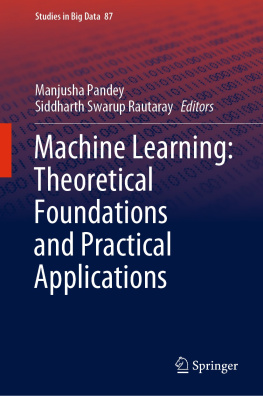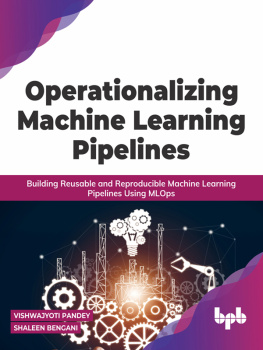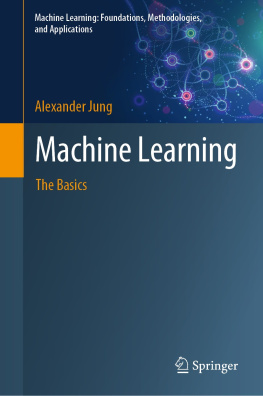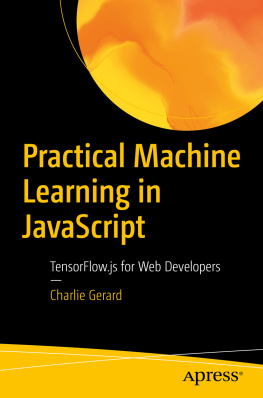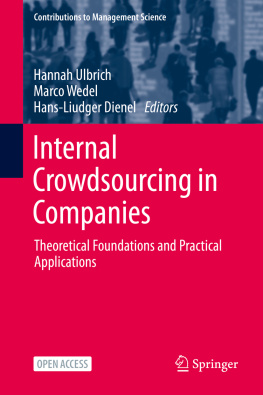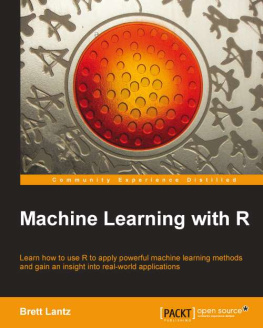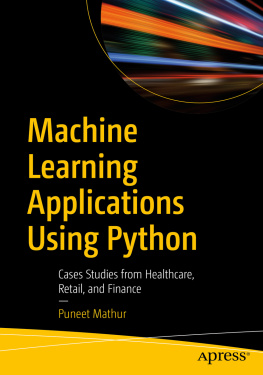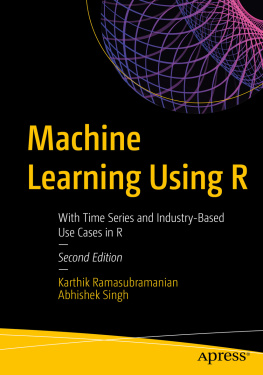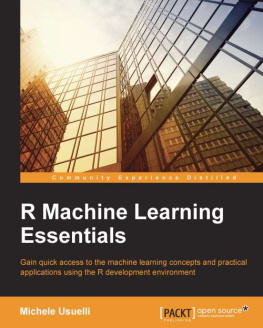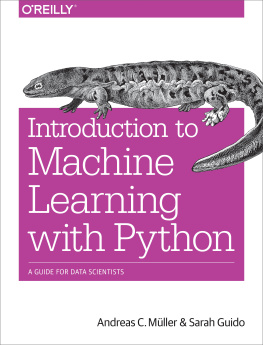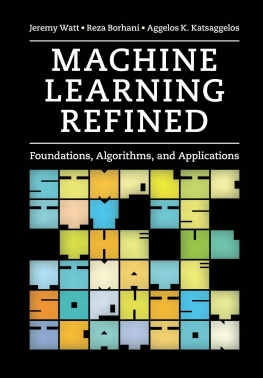Manjusha Pandey - Machine Learning: Theoretical Foundations and Practical Applications
Here you can read online Manjusha Pandey - Machine Learning: Theoretical Foundations and Practical Applications full text of the book (entire story) in english for free. Download pdf and epub, get meaning, cover and reviews about this ebook. year: 2021, publisher: Springer Singapore, genre: Computer. Description of the work, (preface) as well as reviews are available. Best literature library LitArk.com created for fans of good reading and offers a wide selection of genres:
Romance novel
Science fiction
Adventure
Detective
Science
History
Home and family
Prose
Art
Politics
Computer
Non-fiction
Religion
Business
Children
Humor
Choose a favorite category and find really read worthwhile books. Enjoy immersion in the world of imagination, feel the emotions of the characters or learn something new for yourself, make an fascinating discovery.
- Book:Machine Learning: Theoretical Foundations and Practical Applications
- Author:
- Publisher:Springer Singapore
- Genre:
- Year:2021
- Rating:4 / 5
- Favourites:Add to favourites
- Your mark:
- 80
- 1
- 2
- 3
- 4
- 5
Machine Learning: Theoretical Foundations and Practical Applications: summary, description and annotation
We offer to read an annotation, description, summary or preface (depends on what the author of the book "Machine Learning: Theoretical Foundations and Practical Applications" wrote himself). If you haven't found the necessary information about the book — write in the comments, we will try to find it.
Manjusha Pandey: author's other books
Who wrote Machine Learning: Theoretical Foundations and Practical Applications? Find out the surname, the name of the author of the book and a list of all author's works by series.
Machine Learning: Theoretical Foundations and Practical Applications — read online for free the complete book (whole text) full work
Below is the text of the book, divided by pages. System saving the place of the last page read, allows you to conveniently read the book "Machine Learning: Theoretical Foundations and Practical Applications" online for free, without having to search again every time where you left off. Put a bookmark, and you can go to the page where you finished reading at any time.
Font size:
Interval:
Bookmark:
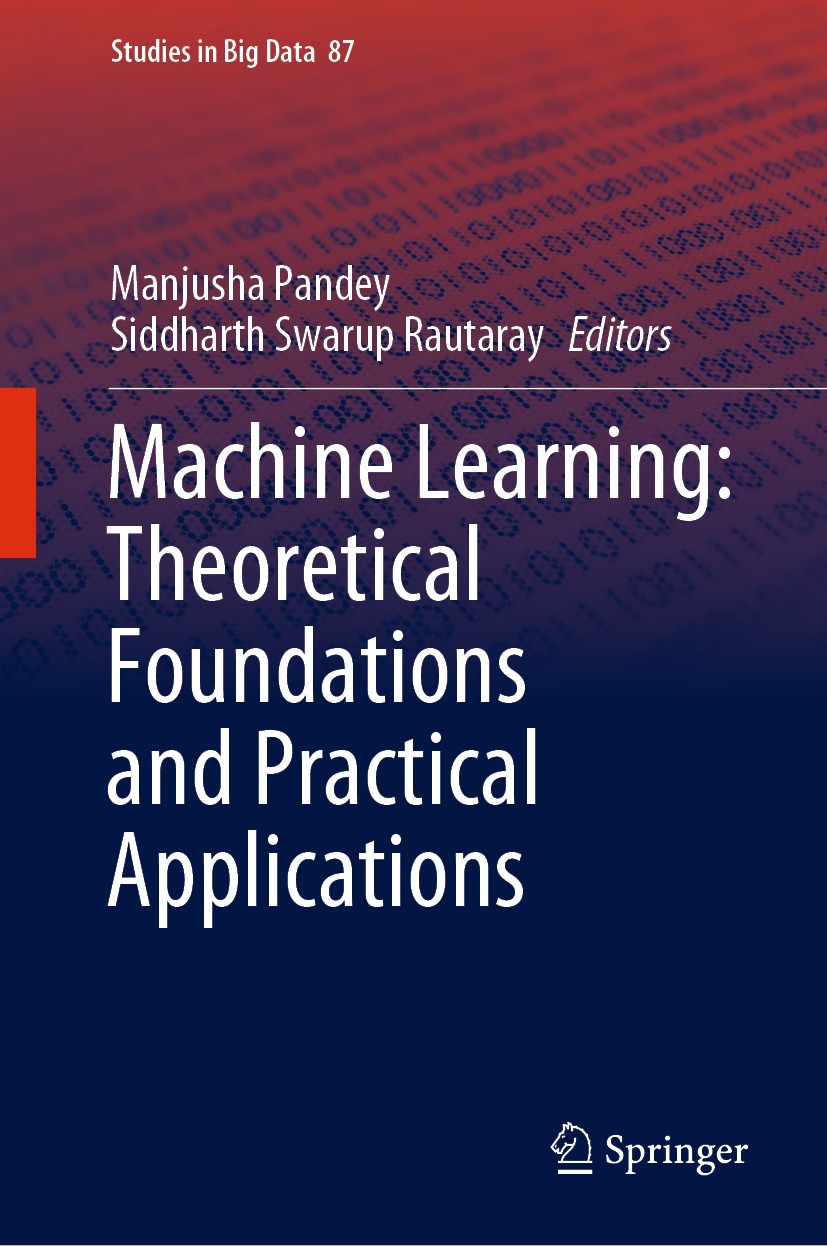
The series Studies in Big Data (SBD) publishes new developments and advances in the various areas of Big Data- quickly and with a high quality. The intent is to cover the theory, research, development, and applications of Big Data, as embedded in the fields of engineering, computer science, physics, economics and life sciences. The books of the series refer to the analysis and understanding of large, complex, and/or distributed data sets generated from recent digital sources coming from sensors or other physical instruments as well as simulations, crowd sourcing, social networks or other internet transactions, such as emails or video click streams and other. The series contains monographs, lecture notes and edited volumes in Big Data spanning the areas of computational intelligence including neural networks, evolutionary computation, soft computing, fuzzy systems, as well as artificial intelligence, data mining, modern statistics and Operations research, as well as self-organizing systems. Of particular value to both the contributors and the readership are the short publication timeframe and the world-wide distribution, which enable both wide and rapid dissemination of research output.
The books of this series are reviewed in a single blind peer review process.
Indexed by zbMATH.
All books published in the series are submitted for consideration in Web of Science.
More information about this series at http://www.springer.com/series/11970

This Springer imprint is published by the registered company Springer Nature Singapore Pte Ltd.
The registered company address is: 152 Beach Road, #21-01/04 Gateway East, Singapore 189721, Singapore
Data science, big data analytics and machine learning are the need of the hour; it has escalated itself in every sphere of our day-to-day lifestyle starting from smart homes to smart agriculture, automobile sector to educational aids and from automated workplaces to circumspect industries; everywhere, the automation has led towards the requirement of machine learning. Machine learning is defined as the embedded capabilities in the computer systems that provide it the ability to learn and adapt without the requirements of explicit instructions each and every time. The same has been made possible by the use of algorithms and statistical models that are use to analyze and draw inferences from patterns in data. The management of huge amount of data that is continuously generated by the automated systems has resulted into rise to concerns regarding data collection efficiency, data processing, analytics and security along with the mandate of machine learning to further automate the processes. The presented edited book titled Machine LearningTheoretical Foundations and Practical Applications is a work consolidating the chapters submitted and invited chapters presented by invited speakers at the 10th Industry Symposium held during 912 January 2020 in conjunction with 16th edition of ICDCIT. As a subset of artificial intelligence machine learning aims to provide computers the ability of independent learning without being explicitly programmed with the ability to take intelligent decisions without human intervention. The stream of research is proceeding towards enabling machines to grow and improve with experiences referred to as learning by machines making them more intelligent. Numerous Advantages of machine learning like usefulness for large-scale data processing, large-scale deployments of machine learning is beneficial for improved speed and accuracy in processing, understanding of nonlinearity in the data and generation of function mapping input to output as in supervised learning providing recommendations for solving classification and regression problems, ensuring better customer profiling and understand of their needs and many more the proposed title aimed to cover the following topics, but not limited to like machine learning and its applications, statistical learning, neural network learning, knowledge acquisition and learning, knowledge-intensive learning, machine learning and information retrieval, machine learning for web navigation and mining, learning through mobile data mining, text and multimedia mining through machine learning, distributed and parallel learning algorithms and applications, feature extraction and classification, theories and models for plausible reasoning, computational learning theory, cognitive modelling, hybrid learning algorithms.
This edited book would be targeting for the technical institutes, analytical industries and analytical research institutes as primary audience, and we hope it would be helpful for the future researchers in the field of machine learning.
Font size:
Interval:
Bookmark:
Similar books «Machine Learning: Theoretical Foundations and Practical Applications»
Look at similar books to Machine Learning: Theoretical Foundations and Practical Applications. We have selected literature similar in name and meaning in the hope of providing readers with more options to find new, interesting, not yet read works.
Discussion, reviews of the book Machine Learning: Theoretical Foundations and Practical Applications and just readers' own opinions. Leave your comments, write what you think about the work, its meaning or the main characters. Specify what exactly you liked and what you didn't like, and why you think so.

